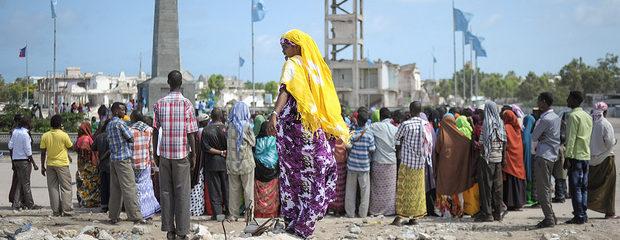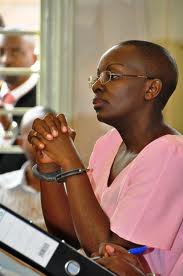Miliband versus de Waal on R2P
The World Tonight last night on BBC Radio 4 was a 45 minute special devoted to an examination of the UK’s foreign policy. It was structured around Foreign Secretary David Miliband’s four priorities, viz terrorism, conflict and the responsibility to protect, carbon and the international system, with interviews and clips preceding a section by section interview with the Foreign Secretary. The section on R2P was introduced with a contribution from Alex de Waal proposing that R2P is no more than a slogan and concluding “RIP R2P” (with the emphasis falling on “peace”). David Miliband responds after that.
You can listen to it for the next few days on this link; the section on R2P is between 19.19 and 19.26.







It was an enjoyable discussion…
But I think you may be casting ‘R2P’ aside too quickly. The principle is sound: that governments do not have untrammelled sovereignty within their own borders and that the international community does not restrict its mandate to regulating relations between states, it is prepared to intervene on relations within states. This was already the case for genocide under the Genocide convention, but R2P establishes a broader basis for intervention to include “genocide, war crimes, ethnic cleansing and crimes against humanity”.
The fact that not every instance of these will not be met with a bold international response does not detract from the importance of the principle, which is in itself necessary to establish the legitimacy of action, though not sufficient to cause an intervention to happen. That still makes it necessary – the alternative being illegal invasions, action outside the UN or the usual hand-wringing and ducking responsibility.
The principle isn’t only a licence to intervene with force in an extreme human rights emergency: it also stresses the use of diplomatic and other peaceful means, and defines the three-part responsibility to prevent, to react and to rebuild. This widens the responsibility of the UN again in a useful way: to look for countries that are high risk and to begin efforts to prevent atrocities before they happen.
One might consider the UNAMID response to Darfur, the persistence of abusive regimes in Africa, and the Burmese junta’s blocking of cyclone aid to be a sign of R2P failure. But is it that failure of the idea? I think it would be expecting too much of a single UN principle to fix these problems. R2P helps – it was cited in the SC resolution authorising UNAMID deployment – and establishes new norms that will surely take time to develop. I can’t see an alternative to this welcome development, but that doesn’t make it a substitute for diplomatic capital, political will, soldiers, equipment or cash.
I think there may be a more permanent link to the programme in Real Player format here:
http://www.bbc.co.uk/radio4/news/worldtonight/ram/worldtonight_miliband_20080513.ram
A Failure to Protect Does Not Mean R2P Has Failed
I wholeheartedly agree with Mr. de Waal that military intervention similar to that of NATO in Kosovo would likely have disastrous effects. But Mr. de Waal does a disservice to the concept of R2P when he claims that “[humanitarian relief and UN patrols of IDP camps] are not enough for the advocates of the ‘responsibility to protect’ – R2P in the jargon. They want military intervention, preferably by NATO, as in Kosovo.” Admittedly some supporters of R2P do propose such intervention, but others (myself included) do not.
The International Commission on Intervention and State Sovereignty (ICISS) in its landmark report in 2001 (http://www.iciss.ca/pdf/Commission-Report.pdf) delineated a conception of R2P that is grounded in practical considerations. The ICISS lists four precautionary principles, one of which is “Reasonable prospects: There must be a reasonable chance of success in halting or averting the suffering which has justified the intervention, with the consequences of action not likely to be worse than the consequences of inaction.”
The failure to protect civilians in Darfur stems from the intractable conflict, not from a failure of R2P. I believe there is a responsibility to protect if and only if we can do so responsibly.